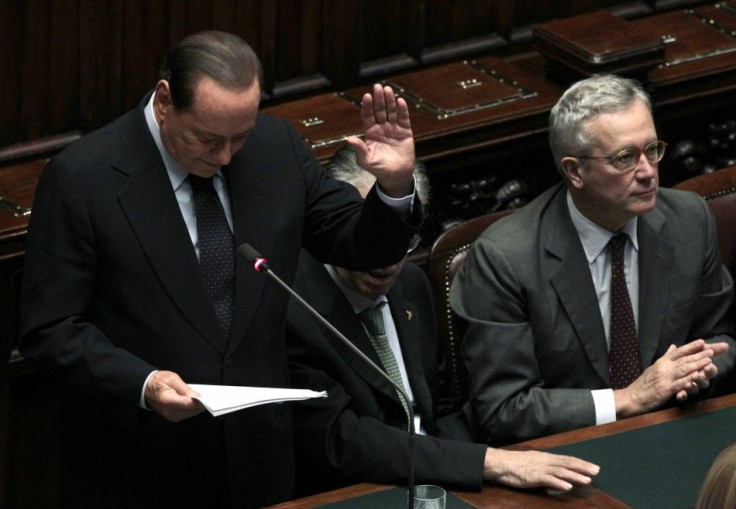Key Coalition Partner Asks Berlusconi to Step Down

A key member of Silvio Berlusconi’s coalition government in Italy has urged the Prime Minister to resign ahead of a crucial budget vote in parliament on Tuesday.
Umberto Bossi, the head of the right-wing Northern League, hasn't only called for Berlusconi to quit, but also suggested he should be replaced by former Justice Minister Angelino Alfano.
We asked the prime minister to stand aside, Bossi told reporters outside parliament.
But he also added: Nothing will happen today.
The beleaguered Berlusconi has already endured waves of defections from his People of Freedom Party and now reportedly lost his majority in Parliament. Nonetheless, he has refused to step down and has specifically denied a report that he has caved into the pressure to leave government.
Berlusconi reportedly said he'll decide on his political future after the vote on state finances concludes.
According to European and British media sources, if Berlusconi loses in the budget vote, he would either resign immediately thereafter or be asked by President Giorgio Napolitano to call another confidence vote.
“Nobody knows what the result will be, I think even Berlusconi doesn’t know,” Roberto D’Alimonte, a professor of politics at LUISS university in Rome, told The Daily Telegraph newspaper.
(However, Berlusconi, a master politician and deal-maker, has survived about 50 confidence votes over his tumultuous political career.)
Meanwhile, Eurozone leaders are pressuring Italy to impose an austerity program to tackle the country’s huge debt -- estimated at 1.9 trillion euros ($2.6 trillion), or 120 percent of GDP. Combined with the country’s weak economic growth--projected to less than one percent this year and next--it's widely feared Italy may need a bailout.
On Monday, the yield on Italian 10-year bonds soared to an all-time high of about 6.74 percent, suggesting the market is skeptical of Rome’s ability to tackle its massive debt. This figure is also dangerously near the seven percent mark that forced Ireland and Portugal to accept a financial rescue.
© Copyright IBTimes 2025. All rights reserved.





















